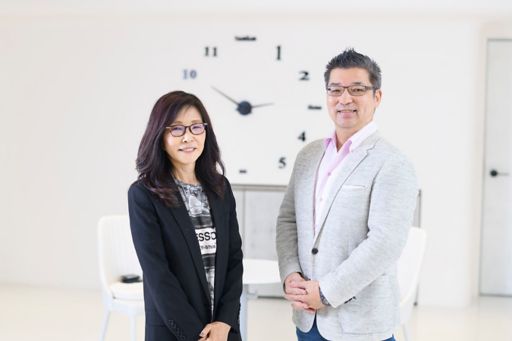New Form of Happiness that Will Spread in the Age where the Culture of Lending and Borrowing Has Taken Root −"A Country where It Is Easy to Borrow and Lend Is Surely a Livable Country”−
All kinds of values are slowly but surely changing due to the COVID-19 pandemic. Especially now that the concepts of ESG and SDGs, which are rapidly gaining recognition these days, and the Millennials/Generation Z are becoming the center of society, the yardstick for measuring life fulfillment that has long been taken for granted is about to change. Because of these times, it is perhaps natural that intrinsic value brought about by sharing services is embraced. We can also say that the power of digital technology is helping to expand this possibility.
In this article, we will introduce the discussions conducted between Rieko Muramoto of Peace Tec Lab Inc. and Masayuki Chatani of KPMG Ignition Tokyo while envisioning and fantasizing “how technology will reform the way we live, work and value” and “what will be the driving force behind this reform?” in the post-COVID-19 age.
Contents
- Link to Vol. 1
- Presence of Individual Exhibitors who Make “Alice.Style” Fun
- Things that Are Lent and Borrowed Are Treated with More Care
- Importance of Not Judging that a Service “Must Be Done in This Way”
- Catharsis of Buying, Pleasure of Lending and Borrowing
- Human Nature Will Not Change in 50 or 100 Years but...
- Business is Emotion. Analysis Will Not Create New Business
- Profile of Interviewee
Presence of Individual Exhibitors who Make “Alice.Style” Fun
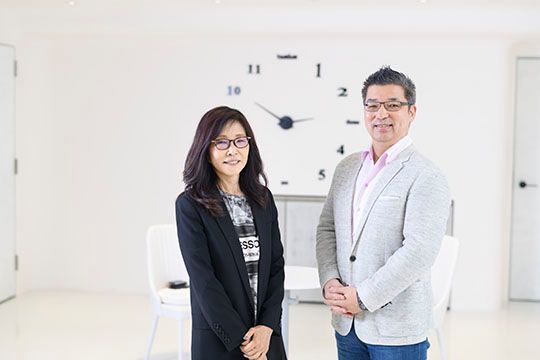
(Rieko Muramoto, Representative Director of Peace Tec Lab, Inc. (left), Masayuki Chatani, Representative Director & CEO of KPMG Ignition Tokyo and CDO of KPMG Japan (right)) *Professional affiliation and official position in the article are at the time of publication.
Chatani: I understand that there are over 500,000 “Alice.Style” users as of September 2021. Are they mostly using the sharing service for the first time?
Muramoto: Yes, they seem to be first-time users.
Chatani: So, I would imagine that this would increase the frequency of using customer support for some problems.
Muramoto: To ensure that the app is easy for users to understand, we have created a simple procedure in which users, when they find a product they want to use, can make a reservation by just entering the date they want to borrow it. The borrower can complete the application in just 30 seconds. That’s why they will think, “I’ll borrow it!” without thinking too much.
As for the lender, many of them are using other flea market apps and understand that they just need to take a picture and upload it, so I don’t think they feel there is any difficulty.
“Alice.Style” basically serves as an intermediary between individual lenders and borrowers but it also handles some goods rented out by companies. In this sense, we can say that it’s a hybrid model of B2C and C2C businesses.
Chatani: It seems that the ratio of individual and company exhibitors is approximately 7:3, with individuals accounting for the larger proportion. Are there more variations in what individuals lend?
Muramoto: Well, my impression is that things rented out by companies are somewhat similar to products sold at specialty boutiques and the things exhibited by individuals can be anything.
An example of the rich variation of exhibits by individuals is Western armor. You will probably feel “disturbed” if it’s displayed in your home. However, for those who want to borrow something, it’s fun to find something so surprising. I think that it’s the individuals that bring out the enjoyment of imagining “I didn’t know people have these things” or “what do you use this for?,” in other words, the enjoyment of the service.
On the other hand, companies often seem to exhibit good products or products that are popular.
Chatani: Armor is certainly interesting and would become a topic of conversation, and it is unlikely that a company would think, “Let’s exhibit this!” Items that your father bought as a hobby and your family members wonder "why did he buy this stuff?" may turn out to help make pocket money if you exhibit them.
Muramoto: I agree. And for some reason, the borrower gets the urge to borrow it for a while. There are times when we don’t want to buy something but want to wear it once, if possible. I think that being able to borrow such items is the joy of individuals participating in “Alice.Style.”
Chatani: How many items are you handling now?
Muramoto: We’re handling about 70,000 products.
Chatani: Such a large number of products cannot be made available in the real world.
Muramoto: That’s true. Armor is shocking but there are also board game collectors who upload photos of all the board games in their rooms and lend them out. Being able to know that someone has such interesting things to offer is one of the interesting aspects of using “Alice.Style.”
Chatani: This may lead users to become connected with like-minded people with whom they have had no previous contact. Are most of the users in Tokyo?
Muramoto: Not necessarily. This may be a bit surprising but there are more online shoppers who are located outside of Tokyo, for example, Hokkaido. Likewise, the places where our service users live are relatively spread out.
Things that Are Lent and Borrowed Are Treated with More Care
Chatani: I think the biggest concern when lending and borrowing things in CtoC is accidents that involve "breaking things." How do you deal with property damage insurance?
Muramoto: Property damage accidents have not occurred very often, with fewer than 100 incidents so far. This may be the strength of Japanese products.
Also, if we lend or borrow something, we may treat it with more care than if we bought it ourselves. Many people probably think, "I’m borrowing it so I have to use it with care," or "If I’m going to lend it to someone, I have to make sure that it’s in good condition.”

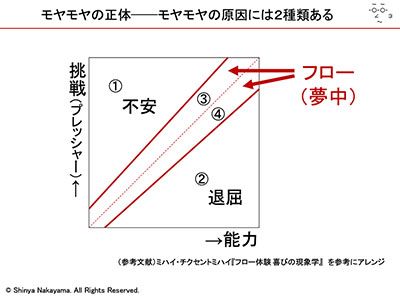
Importance of Not Judging that a Service “Must Be Done in This Way”
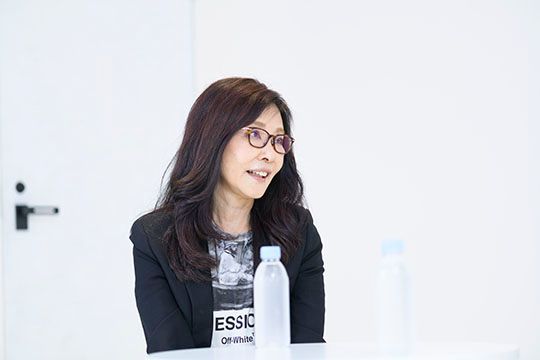
Chatani: Is there a certain category that is actually lent and borrowed a lot?
Muramoto: There are many hobby and beauty-related items.
Chatani: I can't imagine borrowing a beauty-related item for only one week. What kind of needs are there for these items?
Muramoto: Men in particular may feel this way but women have the tendency to think, “I want to use it for a while” or “I want to borrow it for a while because even if I buy facial equipment, I will probably stop using it after a month or so.” It seems that many people want to try using various things they are interested in before they buy them.
When meetings are held in companies, there are usually more men than women. So, when we present our service, they say, "No one will borrow something like that.” However, if there are one or two female employees there, they will say, "I would borrow it.” This difference in the way they feel is interesting.
However, there are quite a few men who rent golf equipment. There must be a need to "use good clubs if they are going to play a round of golf.” Also, we were once asked by a company to handle men's shavers. About 1,000 people rented them but when the company first approached us, we wondered, “should we accept the order when many of the customers of ‘Alice.Style’ are female?” We had a heated discussion about whether or not to accept the offer.
I eventually thought, "Let's do it already! And even if nobody rents it, we’ll be able to get some data.” However, as it turned out, the product was very popular. I thought at the time that it’s the products that we handle that bring people to us in our service and that it’s not good for us to judge that a service “must be this way.”
Chatani: I see. These shavers seem to have been commissioned by a company. What was their purpose?
Muramoto: Companies share products that already exist. For example, there are cases where they want to make people aware of a new product and in other cases, they want to hear the opinions of users because it’s the latest version of a well-known product or the manufacturer is not that well known, but they are absolutely confident in the product they have created. However, they think that its value will be hard to understand unless it is used, so they want people to use it. There are also companies that consult us with the idea of “monetizing their inventory rather than just holding on to it.”
Chatani: I see. As we are spending a lot of our time at home due to the COVID-19 pandemic, users have more time to borrow and try things out and so I guess manufacturers want to turn this situation into business opportunities.
Catharsis of Buying, Pleasure of Lending and Borrowing
Chatani: This relates to the essence of the service but why do people buy things that they are willing to lend?
Muramoto: I assume that there are situations where the act of buying provides a sense of satisfaction or relieves stress. Have you ever felt catharsis and joy when you bought something but then you didn’t feel any attachment to it afterward?
Chatani: Yes. There may be a sense of having won a game, which is like, “I thought about it over and over again and finally bought it!” And after experiencing this cathartic feeling, it would be even better if what you bought could help someone else and if you could make money out of it.

Human Nature Will Not Change in 50 or 100 Years but...
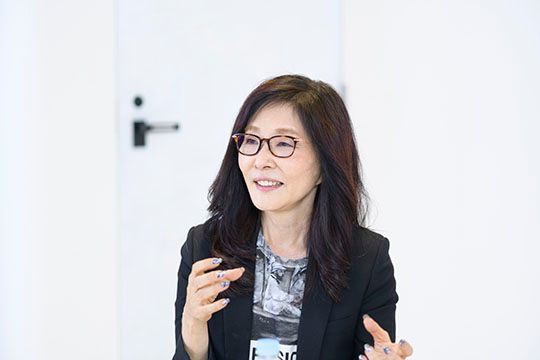
Chatani: Let me ask you a question in a slightly different dimension from here. How do you fantasize or envision that Alice.Style’s act of lending and borrowing will look like or be accepted in society 50 or 100 years from now?
Muramoto: That’s a very difficult question. For example, I think that what people imagined 50 years ago about what the future would be like 50 years from that point in time was actually off the mark. Also, the world is moving so fast now that I think the duration of 50 years in the past will seem like about 10 years today.
As part of my marketing activities, I listen to what people are talking about when I walk outside and get information about what people are interested in from their conversations, such as "I bought that" or "I went there.” I do this because I believe it’s important to maintain fresh sensitivity.
We are actually developing new business by picking up complaints from conversations such as "hair dryers at travel destinations have low airflow" and "it’s a hassle to take a hair iron on a trip.” What we have been doing is to think about the future while reading the winds of the times—people's awareness and the economic environment, the speed of communication and the movement of hardware CPUs.
I have always wanted to "create what is common practice 10 years from now." Actually, when I started thinking about “BeeTV,” I was told that “watching a video on a mobile phone is not common practice,” but it is now. I hope that lending and borrowing casually in our daily lives will become common sense in this way.
Looking at the changing awareness of the new generation and in the COVID-19 pandemic, I feel that lending and borrowing has the potential to become a culture. To become a viable market, there must be two or three competing companies, and also, people need to know that there is a market here. I think that it’s quite difficult to establish a culture without competitors. Competitors are a threat but they are also what forms a market and we must do our best not to drop out of that market.
Beyond this, in 50 or 100 years from now, things will naturally still exist and so I think that lending and borrowing will become easier because logistics and other aspects will have improved greatly.
For example, I think that a life where someone says, "I want to borrow this!" and someone around that person replies, "Here, you can borrow this" is an everyday thing will become a reality. It would be a world where, when you think you want something, a sensor responds and says, "I've already borrowed it," and that something arrives at your house.
The acts of human beings such as using, buying and borrowing something will not change in the next 100 years. However, I think that various processes, mobilities, devices and everything else that make this possible will probably change.
Chatani: Certainly, people who lived 5,000 years ago must have had the same desire to "want something" as modern people.
Muramoto: That’s right. For example, the devices and equipment for making fire and cooking rice have surely evolved but the act of using them remains the same. The act of buying these devices and equipment will become a more casual act and allow people to use them more easily and freely than before. I feel that this kind of thing is starting to occur.
In my fantasy, I imagine that I can "see through" the "things that can be lent" in each person's house in the area where I live, and when I think "I want to borrow this," I can use it. I feel that such a fantasy can be realized with the power of digital technology in 50 or 100 years from now.
Chatani: Manufacturers might feel terrified at the scenario of production numbers becoming difficult to predict or production itself dropping.
Muramoto: I’m not sure about that. Nowadays, there are many people who have things but are not using them. I feel that if we can increase the number of people who use things by creating an environment where they can casually use them, some of them will naturally have a desire to own them and purchase them, which in turn will increase business opportunities. In other words, it is today's "you have to buy it to use it" situation that is narrowing purchasing.
Even if you’re "a little interested" in a certain product, when you hear that the price is "more than 10,000 yen," you may feel "well, I guess I don't need it.” For example, if you see a product you are interested in and have it delivered to your home by just clicking the product page, you can try it out and buy it if you like it or continue to use it in the form of a subscription.
I believe that innovation and process transformation will be realized, whether the frontage is through a TV program or Internet distribution. However, as I have said many times, human nature will not change.
Business is Emotion. Analysis Will Not Create New Business
Chatani: As I can relate to such a “fantasy” very much, let me ask you one more question. You mentioned a little bit about this at the beginning but to evolve things like worldviews, sensitivities and hypotheses into business is generally not considered a tried-and-true method of doing business, even though it makes me excited. How do you feel about this?
Muramoto: I believe that "business is actually sensitivity.” I don’t think that we can create a new business by just analyzing something. I believe that a certain kind of human assumption is necessary, and whether or not it’s logically well supported makes the difference between whether it ends up as a mere idea or becomes a business.
In the case of “BeeTV,” we thought about what movies and screens would look like in the future and envisioned a future where what was projected in a movie theater could now be enjoyed at home thanks to the development of TV and would eventually be enjoyed on mobile phones. We then unraveled the history of movies and were able to conclude that “this will definitely be realized.” In addition, when we projected future communication speeds and capacities, it was clear that there was business potential there.
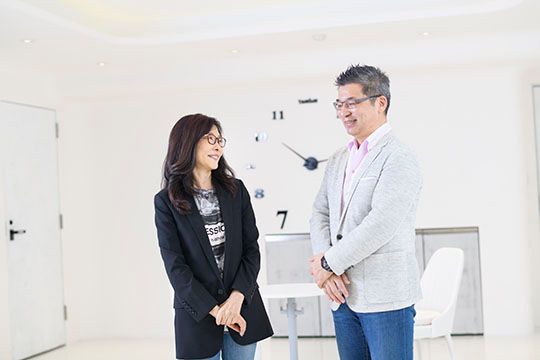
In fact, we see the same potential in “Alice.Style” as we did when we conceived “BeeTV.” I fantasize a society where lending and borrowing is the norm. What I am now considering is an all-you-can-borrow plan called “Alice Prime.” I feel that a new "common sense" will be born if people can borrow what they want, whenever and wherever they need it.
As you can see, the idea aspect is strong at first. However, I think that even if it’s just an idea, there is a part of me that is thinking logically in my head.
Chatani: There are many cases where we come up with an idea and then theorize it later. That’s why I am also setting forth the concept of a "fantasy-driven organization.”
Muramoto: Then I'm also a fantasist! I even fantasize every day that it would be nice to be able to see through the walls of all houses.
Maybe we should voice such fantasies more often. I guess we can't do anything new if we stand on realism.
In reality, there is probably a tremendous number of obstacles to achieve new things, but if we think about how we can break through these obstacles and realize these new things, we can create a truly new market. If we think about things from a realistic viewpoint, we won't be able to expand from there, so we need to start by fantasizing. I guess fantasizing is what really counts (laughs).
It is important to have the assumption and conviction that realizing the fantasy will enable consumers to enjoy more convenience or be happier than now, and it can be said that a fantasy without such an assumption and conviction is only a fantasy.
Chatani: In fact, the management of what are now considered big companies, GAFA for that matter, must surely have been born out of fantasizing. I think Google started out with the fantasy that they were going to "retrieve all the information from the world."
Muramoto: If we keep trying to figure out how we can realize our fantasies, we will end up with various forms of business. That’s probably why business fantasies that lead to entrepreneurship are consistent after all. What is in the past such as KPI results and case studies are not that useful and so we need to look to the future!
Profile of Interviewee

Rieko Muramoto
Representative Director, Peace Tec Lab, Inc.
After graduating from the Department of Sociology, Graduate School of Humanities and Sociology, Faculty of Letters, the University of Tokyo, Rieko Muramoto joined Jiji Press Co. and was engaged in public opinion surveys and market research analysis. In 1997, she became a professor in the School of Business Administration at Senshu University. In 2000, she assumed the post of chairperson of Gala Inc. and contributed to listing the company on the NASDAQ Japan (currently JASDAQ) stock exchange. In 2009, she was appointed as a board member of Avex Broadcasting & Communications Inc., where she took part in the establishment of the mobile video distribution business, “BeeTV (currently dTV),” and was also involved in formulating its business, marketing and organizational strategies after its establishment. In 2013, she was appointed as a board member of Avex Digital Inc., where she promoted digital-related businesses of various companies. In 2016, she established Peace Tec Lab, Inc. In 2018, she started providing “Alice Style,” a lending and borrowing app to establish a new infrastructure for sharing services to realize SDGs and to create a society where “experience” can be provided equally by lending and borrowing things. She was awarded Nikkei Woman’s “Woman of the Year 2021” and was ranked 10th in the corporate category (with fewer than 300 employees) of the “Forbes JAPAN WOMEN AWARD 2021.”
Follow us on KPMG Ignition Tokyo LinkedIn for the latest news.
Connect with us
- Find office locations kpmg.findOfficeLocations
- kpmg.emailUs
- Social media @ KPMG kpmg.socialMedia




